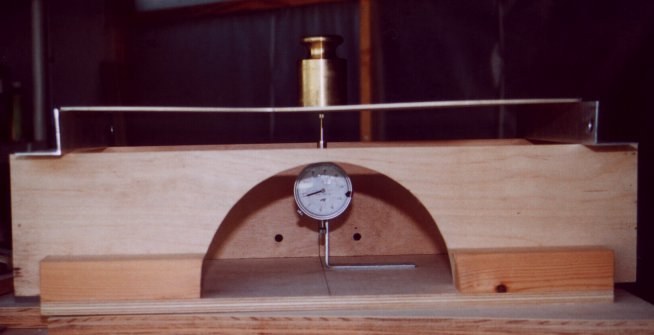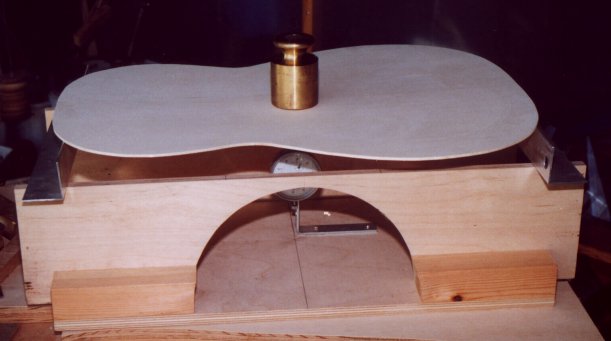The question should be how loose is too loose. With braces and doming
you will be adding great amounts of stiffness, which then in turn gets
loosened back up through carving of the braces. The strings have no clue
how thick a top is, but they have an intimate relationship with how stiff it
is.
It sounds simple, but I hadn't really thought about it that way until I took
Ervin's class. Now my tops are thinned to a certain stiffness. The problem
is there is no easy way to pass that 'stiffness' number along like one can a
thickness number.
The other thing I learned in Ervin's class is that everyone overbuilds tops
at first. With consideration to how stiff the Lutz I have is, and how thick
my tops ended up after sanding to a certain stiffness (this is the "all
things being equal" part of the answer
 ), I would say definitely use it.
), I would say definitely use it.
Use it, take notes, see how it comes out. Good Luck!
Cheers,
-Dave






